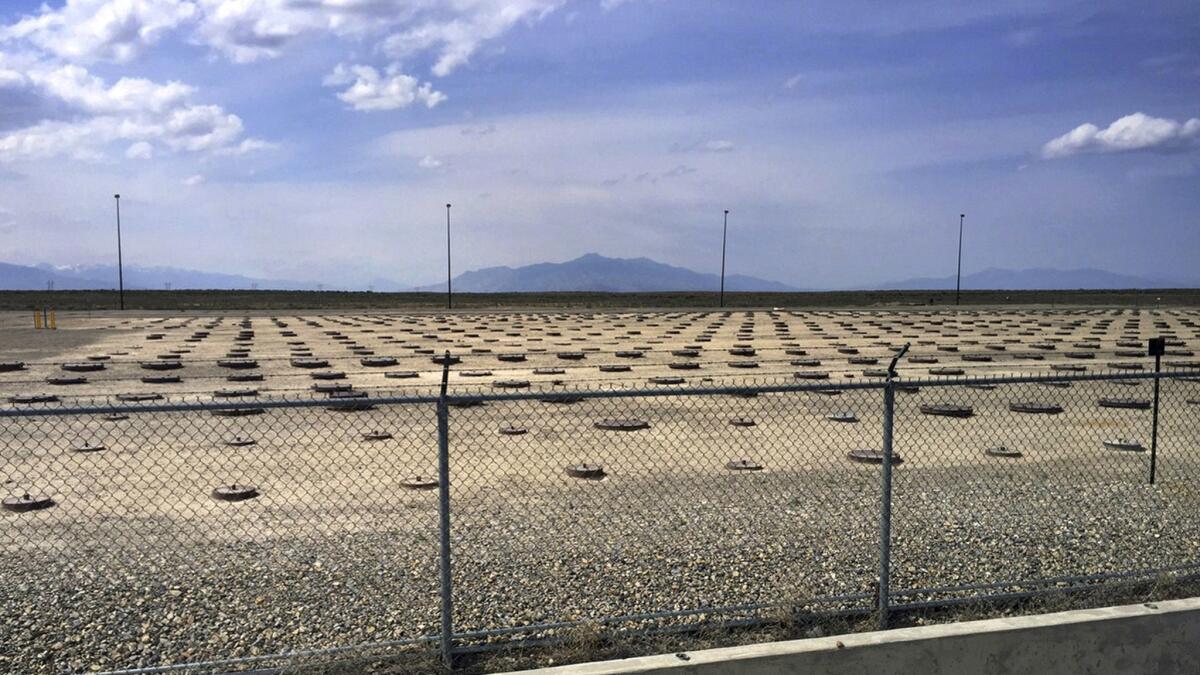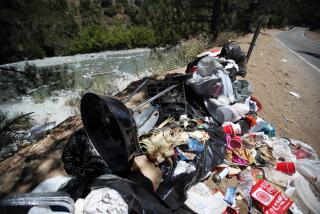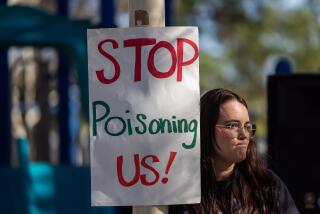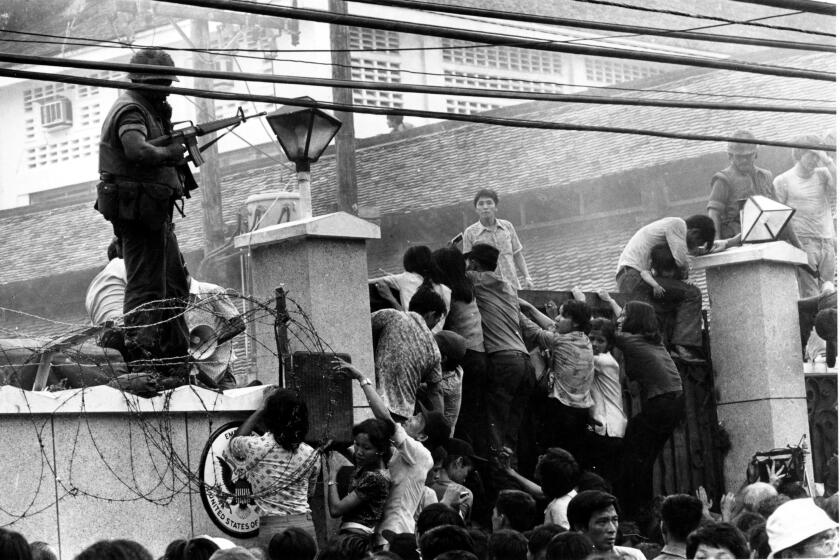Op-Ed: Nuclear waste has been piling up across America with nowhere to go. Congress needs to act

At 74 sites around the country, radioactive waste from the nation’s commercial nuclear reactors is accumulating with no place to go.
The long-standing problem is becoming a logistical and administrative nightmare. Financial pressures are forcing many reactors to close. Thousands of canisters packed with highly radioactive fuel remain.
There are closed nuclear reactors in at least 34 states, including Maine, Florida, Pennsylvania and New York. Some are near big cities, such as the San Onofre plant south of Los Angeles. The sites are monuments to decades of political neglect and mangled nuclear strategy.
But a solution finally appears to be within reach. Thanks to a growing grass-roots movement and new technology, consensus is building in Washington. A bipartisan coalition in Congress may soon be able to update the country’s antiquated nuclear waste laws.
Any new law should allow communities to compete for investment in so-called interim storage.
At the center of the debate is the Nuclear Waste Policy Act of 1982 — legislation that was predicated on the idea that our nuclear reactors, which reload with fresh fuel every 18 to 24 months, would send their spent fuel to at least one national permanent repository.
The 1982 law was passed with strong support, because the location of any repository was unknown. A few years later, the country settled on Nevada’s Yucca Mountain, about 100 miles from Las Vegas.
Since then, our policy has been hamstrung by opposition in that state, with additional opposition coming from people who object to nuclear power altogether and think, wrongly, that blocking the creation of a permanent storage site would prevent more reactors from being built.
Other countries, including Canada and Finland, have avoided this kind of impasse. They invited local communities to compete for the investment and jobs that would come with a nuclear waste repository. By the time this better approach became conventional wisdom, American politics around nuclear waste had already been thrust into gridlock by Yucca Mountain.
New legislation could rectify all this, and some proposals are already in the works.
To be effective, any new law should allow communities to compete for investment in so-called interim storage. These new sites would be vast holding zones, most likely located in the desert and far from people, where spent fuel can sit in one location (rather than dozens) and await a permanent home.
Sites in New Mexico and Texas are already seeking licenses, enticed by a combination of industrial backers (who will profit) and local, well-informed civic leaders who want the jobs and investment. These sites are betting that Congress will change the law, and when that reform happens, more sites are likely to emerge.
New legislation should also ensure that shuttered sites like San Onofre are first in line to send away their spent fuel, ahead of reactors that are still operating.
Getting the votes for a new law will take some political engineering. Most Republicans want to open Yucca Mountain. They are motivated by stronger support for nuclear power and the $11 billion already spent to engineer the site. Democrats are more circumspect, with many questioning whether Yucca Mountain can withstand the scrutiny of rigorous licensing.
But a growing alliance across the two parties recognizes that the country can’t keep stranding nuclear fuel, especially at reactors that have already closed.
In the last Congress, Republican-written legislation was easily passed in the House. Of the 109 sponsors, 21 were Democrats. Bipartisan support grew as the bill moved through the House and was amended to include more language on interim storage. In the new Congress, a Democratic-written bill could do the same, but with more safeguards that could make Nevada and the left a bit happier.
Enter the Fray: First takes on the news of the minute »
Just because it now seems possible to fix the nation’s nuclear mess doesn’t mean Congress will deliver. To get it done, the new House will need to focus on legislating, not grandstanding. The not-so-new Senate will need to get proactive. Sens. Lamar Alexander of Tennessee and Dianne Feinstein of California have been forging a compromise in the Senate Appropriations Committee, one that includes support for interim storage. But no serious bill has been drafted in the Senate.
New technologies could help. For instance, a technique that would inject spent nuclear waste into the Earth’s crust — known as deep borehole drilling — is being tested and may offer alternatives to Yucca.
Regions with closed nuclear plants, including in Southern California, need to keep organizing and pressuring their legislators. The industry and the Decommissioning Plants Coalition, a political lobby also known as the Dead Plant Society, must talk less about the mechanics of closing plants and more about making the politics work.
As 2020 campaigning begins in earnest, new legislation on nuclear waste — a topic that has long been a radioactive third rail in American politics — could remind us what bipartisanship looks like.
David G. Victor is a professor of international relations at UC San Diego and a nonresident senior fellow at the Brookings Institution. Dan Stetson is head of the Nicholas Endowment and president emeritus of the Ocean Institute. Jerry Kern is a former member of the Oceanside City Council. Together they lead the San Onofre Community Engagement Panel, a volunteer group working toward the safe closure of the San Onofre Nuclear Generating Station.
Follow the Opinion section on Twitter @latimesopinion or Facebook
More to Read
A cure for the common opinion
Get thought-provoking perspectives with our weekly newsletter.
You may occasionally receive promotional content from the Los Angeles Times.






